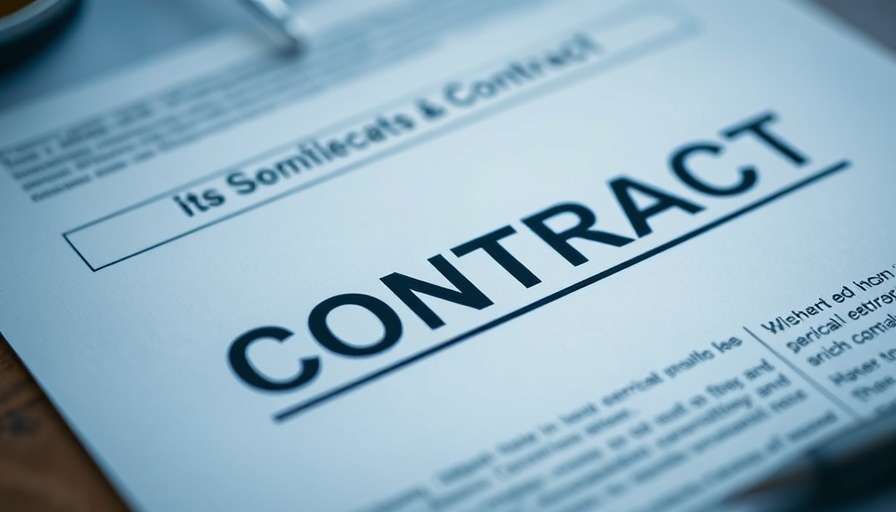
The Importance of Specificity in Insurance Claims
Navigating the waters of property damage claims in South Carolina can feel daunting, particularly when it comes to understanding specific legal requirements that can make or break a case. The recent ruling in Alejandro Garcia-Terrazas v. State Farm serves as a critical reminder that vague claims or inadequate documentation can lead to unfavorable outcomes for policyholders. Even in a state known for strong property insurance laws, failing to present a solid case can result in the dismissal of a claim, leaving individuals vulnerable when they need support the most.
Understanding Bad Faith Insurance
In Mr. Garcia-Terrazas’ case, the crux of the issue resided in the interpretation of what constitutes bad faith by an insurer. In essence, a policyholder must demonstrate that coverage exists for the loss and that the insurer's refusal to pay was unreasonable. This entails more than just asserting dissatisfaction with the insurance company's decision. Specific facts and evidence must be presented to substantiate allegations of bad faith—a concept that’s often misunderstood by policyholders. Without detailed supporting evidence, courts can easily reject claims as merely conclusory.
Building Your Case: The Right Evidence Matters
The need for a robust evidential foundation cannot be overstated. Those who find themselves in similar situations as Mr. Garcia-Terrazas should engage artists—Such as public adjusters or legal professionals—who can assist in gathering the necessary documentation and presenting it effectively. This means compelling photographs, detailed reports from mitigation companies, and any communication with the insurer that highlights the inadequacies of their process. This proactive approach can significantly strengthen a lawsuit against an insurer, providing a clear basis for the court to assess the insurer's actions as unreasonable.
Common Misconceptions: The Role of Insurance Adjusters
Another essential aspect to understand is the role of insurance adjusters in this process. Many policyholders mistakenly believe that adjusters are solely there to advocate for them. In reality, adjusters often operate under the guidelines of their employers, which can mean prioritizing cost savings for the insurance company over fair payouts. It's crucial to be aware of this dynamic and equip oneself with knowledge about how adjusters may try to manipulate claims, often asking leading questions or downplaying the severity of damage to minimize payouts.
Future Considerations: Protecting Your Insurance Rights
As South Carolina residents navigate property damage claims, it's vital to be aware not only of their rights but also to remain vigilant against unfair insurance practices. This includes recognizing when an insurer is employing tactics that delay settlements or deny claims unjustly. Familiarizing oneself with the legislative landscape surrounding property insurance can aid policyholders in making informed decisions that will protect their interests during the process.
Concluding Thoughts: Take Action Wisely
Understanding the intricate processes surrounding property damage claims enables policyholders to make informed decisions and take proactive steps that could secure their financial stability. Ensuring that you have the right information, documentation, and representation in place can make all the difference between a successful claim and a frustrating denial. If you find yourself facing a denied claim, don't hesitate to reach out for help—it may be the key to protecting your rights in the complicated world of insurance.
 Add Row
Add Row  Add
Add 




Write A Comment